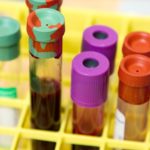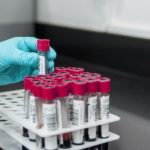Is driving safe for diabetic patients?
Driving a vehicle requires a very high degree of skills. Perfect hand-eye coordination is a necessity to stay safe on the road. A small error in judgment can be devastating and life-threatening. A medical disability may precipitate a road traffic accident. Diabetes is one such disease in which the parameters of blood sugar may have sudden variations. A fall in sugar levels is much more dangerous than a rise. In many countries, people with diabetes have limitations in driving.
Diabetes is a metabolic disorder characterized by hyperglycemia (increased blood sugar) due to relative or absolute deficiency of insulin hormone. An uncontrolled sugar profile results in target organ damage of eyes, kidneys, cardiovascular system, and nerves. On the other hand, a suddenly reduced intake of food or overdose of insulin may result in hypoglycemia (decreased blood sugar) which may result in mortality. The main risk factors for the driver with diabetes are hypoglycemia and diminished vision which occurs due to cataracts or retinopathy.
Diabetes and driving – factors increasing the risk
Various changes in the body due to this disease may pose an additional danger to the driver, co-passengers, or to the innocent pedestrian. They are considered below:
- Hypoglycemia: Hypoglycemia manifests as tachycardia, palpitation, and sweating. It is associated with weakness and hunger. People with insulin-treated diabetes are at the highest risk of developing hypoglycemia which causes dysfunction of cognition. This can adversely affect the driving skills of a person suddenly. It may also bring in certain mood changes. Motor skills and judgment can become impaired when blood glucose falls very low (<3.8 mmol/L). Drivers with diabetes must take precautions to avoid hypoglycemia and know how to treat it if it occurs while driving. They should carry some biscuits or candies for emergency use only.
In patients with a long duration of disease who have developed neuropathy (disease of the nerves) involving the autonomic nervous system, these effects of hypoglycemia may not become apparent, adding the risk. Impaired awareness of hypoglycemia is a relative contraindication to driving.
- Eye disease: Diabetes results in increased chances of retinopathy, cataract, and corneal opacities. These conditions result in poor vision and a handicap to drive especially at night. If the visual acuity cannot be corrected to 6/12 or more, then it is recommended to avoid driving. The other eye problems which may preclude one from driving on a busy road are diminished field of vision, poor night vision, and perception of movement which occurs due to cataracts, retinopathy, and laser treatment.
- Peripheral neuropathy: Sensory neuropathy results in loss of sensation over the feet and legs. The diminished sensation is a major handicap for driving. A motor nerve neuropathy also occurs in diabetes and results in muscle incoordination. The fine movements are affected and increase the risk of an accident if driving is attempted. A neuropathy involving the hands and arms poses the same danger.
- Peripheral vascular disease: It results in narrowing of blood vessels supplying blood to the lower limbs. The resultant ischemia (lack of blood supply) causes claudication (pain on exertion). During driving the pain may get precipitated due to contraction of calf muscles. This will prohibit a person from driving for a long distance, which also depends on the severity of the disease.
- Lower limb amputation: They present with mechanical difficulties while driving. This problem can be tackled by a driving vehicle that is self-geared or has an automatic transmission system.
Diabetics should be more careful especially if they plan a long voyage. A check on blood sugar should be done before starting the journey. One should take frequent and regular breaks with snacks. Alcohol should be avoided. Personal identification should have details of the medical condition. If hypoglycemia develops, then the journey should be postponed and a medical consult should be taken.




























